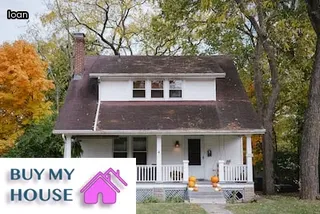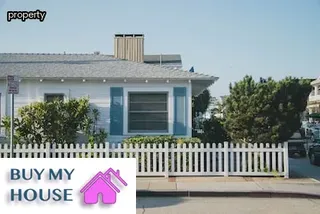Navigating foreclosure in Illinois can be a daunting process for homeowners. In the state, lenders may foreclose on a home if the mortgage payments are more than 90 days overdue, or if the homeowner has otherwise violated their mortgage terms.
Before any action is taken by the lender, however, homeowners must receive notice of default and have an opportunity to cure the violation. After this period has passed, the lender will take one of two possible paths: judicial foreclosure or power of sale.
Judicial foreclosures involve filing a lawsuit against the homeowner; power of sale proceedings require that the lender publish a notice in a local newspaper. The lender can then sell the property at auction to recover their losses, unless they are able to reach an agreement with the homeowner prior to repossession.
In either case, homeowners should familiarize themselves with their rights and options under Illinois law in order to ensure that they receive fair treatment throughout the foreclosure process.

When it comes to navigating the foreclosure process in Illinois, understanding the concept of pre-foreclosure and default notices is key. Homeowners should be aware that when they are unable to make a mortgage payment, they may receive a notice from their lender.
This notice will outline the details of the missed payment and provide information about how to move forward with paying it off or coming up with an alternative solution. The homeowner can also expect to receive a default notice if two or more payments have been missed.
This document informs the homeowner that legal action may be taken if payments are not made and offers them a chance to dispute the allegations in court. In both cases, these notices put homeowners on alert that they need to take swift action in order to avoid foreclosure proceedings.
When a homeowner in Illinois is facing foreclosure, there are steps they can take to stop it. The most important thing to do is to contact the lender right away.
If the homeowner has any financial documents that may help with understanding their current situation, they should be prepared to share these with the lender. Homeowners can also submit a loan modification application, which may allow them to restructure their loan and avoid foreclosure.
Additionally, homeowners should look into refinancing options and even short sales if necessary. Each of these solutions requires different paperwork and procedures, so it’s wise for homeowners to consult an experienced attorney or professional for advice on the best course of action for their specific situation.
It’s also important for homeowners to remember that Illinois has certain protections in place that can help prevent foreclosure if followed correctly, such as the Illinois Mortgage Foreclosure Law (IMFL). Knowing these laws and how they apply can help homeowners explore all possible solutions and avoid foreclosure altogether.

When a homeowner in Illinois faces foreclosure, they have rights that are protected by state and federal laws. Homeowners in Illinois should be aware of their rights during the foreclosure process.
The Illinois Mortgage Foreclosure Law requires lenders to provide homeowners with a notice before initiating a foreclosure. This is known as pre-foreclosure notice, which includes information about the property, the amount due, and other notices related to the foreclosure.
Additionally, homeowners have the right to contest the foreclosure in court if they believe it is not warranted. Homeowners can also negotiate with the lender for an alternative repayment solution such as a loan modification or repayment plan.
During this time, lenders must provide documents showing ownership of the mortgage debt and proof that all payments have been made on time. Homeowners should also consider consulting with an attorney prior to any court proceedings or negotiations with lenders.
They can help review documents and explain their legal rights throughout the process. Furthermore, homeowners may be able to take advantage of government programs designed to help those facing financial hardship keep their homes during a foreclosure process in Illinois.
Navigating foreclosure in Illinois can be a complicated and stressful process. It is important for homeowners to understand the steps of the foreclosure process, so they can make informed decisions about their home and finances.
In Illinois, foreclosures are judicial proceedings that require the lender to file a lawsuit against the homeowner in order to regain possession of the property. After filing the suit, the homeowner will receive a summons and complaint from the court.
The homeowner must then answer this complaint within 30 days or else face an automatic judgment in favor of the lender. Once an answer has been filed, a court hearing will be set up and both parties may present evidence at this hearing.
If no agreement is reached between both parties, then a foreclosure sale will be scheduled and advertised in a local newspaper. On the day of sale, if no one bids on the property or if no agreement is made with the lender, then ownership of the property will transfer to them.
Homeowners should also note that they can still negotiate with their lender after filing an answer to try and avoid foreclosure or reach an alternate resolution such as loan modification or deed-in-lieu of foreclosure.

A Deficiency Judgment is a court-ordered collection of the remaining balance due on a loan after a foreclosure. In Illinois, if the lender forecloses on the property and sells it for less than what is owed on the loan, they can sue you for the remaining balance.
The amount of the deficiency judgment would be determined by the difference between what was owed and what was received at auction. When considering foreclosure in Illinois, it is important to understand that this type of judgment can be brought against you.
It is important to consult with an attorney or financial professional in order to understand all of your options before deciding how to move forward with foreclosure proceedings.
When a homeowner in Illinois is facing foreclosure, it is important for them to understand the process and be aware of the legal documents that are involved. One such document is a breach letter.
This document is sent by a lender to inform a borrower that they have defaulted on their mortgage loan agreement and gives them an opportunity to cure the default before taking any further action. A demand letter may also be sent if there has been no response to the breach letter.
This document requires the borrower to pay off the entire balance due or face legal action from the lender. Once this letter has been received, it is important for the homeowner to communicate with the lender about repayment options or other solutions that could prevent foreclosure proceedings from starting.
It is also important for homeowners in Illinois to consider seeking legal advice or financial counseling if they are unable to come up with an agreeable solution with their lender.

Once a lender has foreclosed on a property in Illinois, they can then sell it to recover their losses. If the borrower is still living in the home, they will have to move out by the date of sale.
The amount owed on the loan must be paid in full immediately, and if there is a remaining balance due, it must be paid within 30 days. Eviction proceedings will then take place if the borrower does not vacate the home by the date of sale.
This process can be lengthy and complex and may require legal assistance from an experienced real estate attorney. During an eviction, a sheriff or other law enforcement officer will remove any personal belongings left behind and change all locks on the premises.
It is important that borrowers are aware of their rights throughout this process and seek qualified legal advice as needed to ensure their best interests are addressed.
Once a foreclosure sale has been confirmed, the homeowner has little recourse. In Illinois, the confirmation of a foreclosure sale is made by the court and generally happens within 30 days of the sale.
After a foreclosure sale is confirmed, the deed to the property transfers to the new owner and any remaining rights that a homeowner may have had in their home are extinguished. Homeowners should be aware that they may still owe any unpaid taxes or assessments on the property even after it has been sold in foreclosure.
It is important for Illinois homeowners facing foreclosure to know that once a sale is confirmed, there is no way for them to reclaim ownership of their home and they should seek legal advice if they have questions about their rights following a foreclosure sale.

Foreclosure is a difficult situation to face and it's important for homeowners in Illinois to understand the process and potential consequences. Before deciding whether or not to let a house go into foreclosure, there are several considerations that need to be taken into account.
Firstly, homeowners need to be aware of their rights since they vary from state to state. In Illinois, borrowers have the right to receive notice before their lender can start the foreclosure process.
Additionally, when a home goes into foreclosure in Illinois, it needs to be sold at public auction or through a sheriff’s sale. Furthermore, it's essential for homeowners to understand that allowing a house to go into foreclosure can significantly damage their credit score for years and make it difficult for them to qualify for loans in the future.
Finally, borrowers should keep in mind that lenders may pursue legal action if they are not able to recoup all of the money they are owed after a foreclosure sale. It's important for borrowers in Illinois who are facing foreclosure to gain an understanding of the process as well as their rights so they can make an informed decision about how best to proceed.
When a homeowner faces foreclosure in Illinois, they need to understand the timeline and process for vacating the property. Generally, once a homeowner has been given notice of foreclosure and their right to redeem the property has expired, they must move out within 90 days.
It is important to note that the time limit begins from the day of the sale at auction or from when the redemption period ends. Homeowners should also be aware that during this timeframe all rent or mortgage payments must stop.
Once foreclosure proceedings have started, homeowners should look into alternative housing options as soon as possible. Furthermore, homeowners are responsible for moving out all personal items by the deadline and if any remain after that point, they will be removed by the bank’s representative at their expense.
If a homeowner needs additional time to move out due to extenuating circumstances, they can contact the court for an extension but it must be done prior to the deadline. In order to avoid confusion and potential legal issues due to missed deadlines, it is recommended that homeowners consult with an attorney or housing counselor throughout each step of navigating foreclosure in Illinois.

When it comes to financing options after an Illinois foreclosure, homeowners should be aware of the various options available to them. While traditional lenders may not be willing to work with those who have gone through foreclosure, there are still ways for homeowners to secure a loan.
Homeowners may consider working with a portfolio lender, who will look at a borrower’s individual circumstances rather than the credit score and other factors that might disqualify one from a traditional loan. Homeowners may also consider government-backed loans such as FHA and VA loans.
These programs often offer more flexible terms than private lenders and typically require lower down payments and less stringent credit requirements. Additionally, homeowners can explore rent-to-own agreements that allow them to pay rent until they are able to qualify for a mortgage or purchase the home outright in the future.
Understanding these options can help homeowners navigate their financial situation after an Illinois foreclosure.
When a homeowner in Illinois is facing foreclosure, it's important to understand the tax implications that may arise after the sale. First and foremost, any forgiven debt due to foreclosure will be considered taxable income by the IRS.
If a mortgage lender has foreclosed on a home and then sold the property, any remaining balance on the loan not paid off by the sale of the property is considered "cancelled debt," and this amount will likely be reported to both state and federal taxing authorities. Homeowners should also be aware that they can deduct certain costs associated with foreclosure from their taxes, such as legal fees or moving expenses related to finding a new residence.
It's important for homeowners who have gone through foreclosure in Illinois to keep detailed records of all associated costs, so they can potentially benefit from tax deductions or credits that might apply. Additionally, homeowners who are facing financial hardship as a result of foreclosure may qualify for an insolvency exclusion, which reduces taxable income from cancelled debt.
Consulting with a tax professional can help provide insight into navigating these complex tax laws after an Illinois foreclosure.

During a foreclosure process in Illinois, homeowners should consider availing legal help to ensure that their rights and interests are protected throughout the process. It is important to consult with an experienced attorney who can provide advice regarding the legal aspects of foreclosure proceedings and can represent homeowners in court if necessary.
Additionally, a lawyer can explain the various options available to the homeowner during this difficult time, such as repayment plans or loan modifications that could help save the home. Homeowners should also be aware of the laws and regulations related to foreclosure in Illinois, including filing requirements and deadlines imposed on lenders by state courts.
Having an attorney review all documents related to the foreclosure before they are signed is essential for making sure that homeowners understand their rights and responsibilities fully. By taking proactive steps and working with an experienced attorney, homeowners can make informed decisions about how best to navigate through this difficult stage.
When faced with the prospect of foreclosure, Illinois homeowners have a few options to consider that may help them avoid the process. One of the most common alternatives is loan modification.
Homeowners can try to modify their existing loan in order to reduce the interest rate or lower monthly payments. If they are successful, they may be able to keep their home and avoid foreclosure.
Another option is refinancing which could allow them to take out a new loan at a lower interest rate to pay off the existing mortgage debt. This could also help reduce payments and prevent foreclosure.
Homeowners who are unable to make any payments or need more time should look into forbearance plans; these allow for reduced or suspended mortgage payments for a certain period of time, giving homeowners a chance to catch up on payments or find an alternative solution before entering foreclosure. Finally, short sale is an option for those homeowners who cannot afford their mortgage but don’t want their credit damaged by foreclosure proceedings.
A short sale involves selling the home for less than what is owed on it and allowing the lender to forgive part of the remaining debt amount. Though all of these alternatives come with risks and drawbacks, understanding each one can help Illinois homeowners make an informed decision that works best for them and their financial future.

The consequences of a foreclosure on one's credit rating in Illinois can be severe and long-lasting. A homeowner who goes through the foreclosure process may see their credit score drop significantly, which can lead to higher interest rates for loans or even being denied a loan altogether.
This can be particularly damaging for someone looking to purchase a home in the future, as lenders may be wary of offering them a loan due to their history of foreclosure. Furthermore, the negative effects on one's credit rating may remain on their record for up to seven years, making it difficult to rebuild their financial reputation after such an event.
It is important for homeowners facing foreclosure in Illinois to understand how this process could affect their credit rating and take steps accordingly to minimize potential damage both in the short-term and long-term.
Filing for bankruptcy during a foreclosure in Illinois can provide certain advantages and drawbacks. On the upside, filing for bankruptcy can temporarily stop the foreclosure process and give homeowners additional time to explore their legal options.
It also allows them to discharge some of their other debts so they can focus on resolving the mortgage issue. However, it is important to note that filing for bankruptcy will not make the mortgage debt disappear or reduce the amount owed.
Furthermore, it can negatively impact their credit rating and create long-term financial issues. Therefore, homeowners should carefully weigh the pros and cons of filing for bankruptcy before making a decision, as it may not be the best choice for everyone in this situation.

Navigating foreclosure in Illinois can be a daunting process, but it is important for homeowners to be aware of their rights and obligations as they go through the foreclosure process. Both state and federal laws provide protections for homeowners in Illinois facing foreclosure.
At the state level, Illinois law requires lenders to provide notice of intended foreclosure at least 30 days before filing suit. The notice must include an explanation of the homeowner’s right to request mediation and how to exercise that right.
Furthermore, under state law, lenders may not file a foreclosure action unless they have first made a “reasonable effort” to contact the borrower directly or through a third party housing counselor to explore possible alternatives to foreclosure. On the federal level, servicers must notify borrowers when their mortgages become delinquent, provide information about loss mitigation options, and follow certain procedures during the foreclosure process.
It is important for homeowners in Illinois to be familiar with both state and federal laws related to foreclosures so that they can make informed decisions throughout the process.
Falling behind on mortgage payments is a common reason why homeowners in Illinois experience preforeclosure. Other factors like job loss, divorce, or unexpected medical expenses can also create a financial hardship that leads to this unfortunate situation.
Additionally, many homeowners in Illinois fail to realize that taking out a loan secured by their home may result in foreclosure if they are unable to pay the loan back. Even if the initial mortgage payment is made on time, missing a second loan payment could lead to foreclosure.
Although these can all be difficult situations for homeowners, learning about the process and understanding options can help them navigate preforeclosure more easily.

Navigating foreclosure in Illinois can be a difficult and confusing process, but homeowners can take action to protect their rights. One of the most important resources available to Illinois homeowners facing foreclosure is free counseling services that can help them understand their legal rights and responsibilities, assess their options, and develop an action plan for resolving the foreclosure.
Homeowners should seek out counseling services as soon as possible after being served with a foreclosure summons, as this will provide them with the best chance of avoiding foreclosure. Counseling services are available from a number of organizations in Illinois, including nonprofit housing counseling agencies certified by the Department of Housing and Urban Development (HUD).
These agencies offer homeowners assistance with budgeting and credit counseling, developing loan modifications or forbearance agreements with lenders, filing bankruptcy if necessary, and other strategies to avoid foreclosure. To access free counseling services in Illinois, homeowners should contact HUD-approved housing counselors directly or call the Homeowner's HOPE Hotline at 1-888-995-HOPE (4673).
In Illinois, the length of time a homeowner can remain in their home after foreclosure varies depending on the type of foreclosure. Generally, homeowners whose home has been foreclosed upon have six months to remain in their home before they are required to vacate.
However, if the foreclosure is judicial or judicial-based, then the homeowner may have up to nine months before they must leave. In some cases, a court order may be issued that allows homeowners to stay in the property until a resolution can be reached between both parties.
As such, it is important for homeowners facing foreclosure to fully understand their rights and options under Illinois law so that they can make an informed decision about how long they can remain in their foreclosed home.

There are many reasons why a homeowner might let their house go into foreclosure. Financial hardship is the most common cause of foreclosure, as homeowners may be unable to afford their mortgage payments and other housing costs due to an unexpected job loss, medical bills, divorce, or death in the family.
Other contributing factors include an inability to refinance or modify a loan due to unfavorable market conditions, as well as predatory lending practices which can lead to unmanageable debt. In some cases, homeowners may decide that they would rather let the home go into foreclosure than continue making payments with no signs of ever being able to pay it off entirely.
Navigating foreclosure in Illinois can be difficult for any homeowner; however understanding why someone may let their house go into foreclosure can help them make informed decisions about their future housing needs.
If you are facing foreclosure in Illinois, you may be wondering if you will get any money from the process. Fortunately, Illinois law does provide some protections for homeowners in foreclosure.
In most cases, if the proceeds from a foreclosure sale exceed the amount of the judgment against the homeowner, the excess funds will be paid to them. This means that you could receive some money after a foreclosure sale, depending on how much it fetches and how much debt is owed on the property.
Homeowners should work with an experienced attorney to understand their rights and how they may receive any excess funds from a foreclosure sale.
The foreclosure process in Illinois takes an average of 8 months, though it can take as little as 6 or up to 24 months. It is important for homeowners to understand the timeline of the foreclosure process and plan accordingly.
The length of the foreclosure depends on several factors including whether the homeowner submits a response to the lawsuit, if the home has been abandoned, and if a third-party buyer purchases the property at auction. The first step in navigating foreclosure in Illinois is knowing how long it will take.
Homeowners should be aware that most foreclosures take 8 months from start to finish, but ultimately it depends on individual circumstances.
A: It is important to understand your rights and options when facing a potential foreclosure in Illinois. You may want to consider engaging the services of an attorney who specializes in foreclosure defense, as they can help you negotiate with your mortgage provider and explore other options such as loan modification or repayment plans. Additionally, you should be aware of the timeline for foreclosing on your home, so you can make informed decisions about how best to proceed.
A: Generally speaking, no. The lender typically cannot enter a judgment against you as a renter if the landlord defaults on the mortgage agreement. However, depending on your specific situation and contract with your landlord, they may be able to take legal action against you to collect unpaid rent or other damages. It's best to speak with an attorney for more information about your rights and options when faced with this scenario.
A: In Illinois, if you breach your mortgage agreement as a mortgagor, you could face foreclosure. This means that the lender can repossess your home and sell it to cover any losses. Additionally, depending on the terms of your lease agreement with your landlord, they may be able to enter a judgment against you if they defaulted on their mortgage agreement.
A: If you fail to comply with the terms of your mortgage agreement in Illinois, you may face real estate law litigation. The lender may pursue a court order for foreclosure or other legal action against you for breach of the mortgage agreement and failure to pay on the real property.
A: Depending on the circumstances, there are several options to prevent or delay foreclosure in Illinois. Generally speaking, the lender must obtain a court judgment before they can foreclose on a property located in Illinois. This process involves filing a complaint with the court, serving notice to the mortgagor, and attending a trial. However, it is possible to reach an agreement with the lender prior to trial through negotiation or mediation. It is highly recommended that you consult with experienced real estate law firms as soon as possible for more information about your rights and options under Illinois statutes and laws.
A: As a mortgagor, you have the right to contest any foreclosure proceedings in court. If you believe the foreclosure is fraudulent or involves misrepresentation of facts, you can request that a mediator be appointed to review your case before it goes to trial. If the dispute cannot be settled through mediation, then the matter would go before a judge who will make a ruling based on applicable statutes and laws.
A: In Illinois, the Mortgage Foreclosure Law protects mortgagors from fraudulent or unfair foreclosure proceedings by requiring lenders to provide written notice to borrowers of their rights prior to initiating litigation. If a lender fails to comply with this law, they may be subjected to civil and criminal penalties. Additionally, borrowers can seek legal recourse under the Consumer Fraud and Deceptive Business Practices Act if they believe they have been deceived or taken advantage of by a lender.
A: Homeowners in Illinois have the legal right to challenge a foreclosure process and can seek consent from their lender to avoid a trial. They should also be aware of the relevant statutes and laws governing foreclosures in the state, such as the Foreclosure Law (735 ILCS 5/15-1101 et seq.) and the Mortgage Foreclosure Article (765 ILCS 605/1 et seq.). Additionally, homeowners have protections against fraudulent or illegal foreclosure proceedings, such as filing a lawsuit for injunctive relief or damages.
A: If a homeowner in Illinois lets their house go into foreclosure, they will be responsible for any unpaid property taxes associated with the home up to the date of transfer. The new owner of the property would then be responsible for all future taxes on the home.